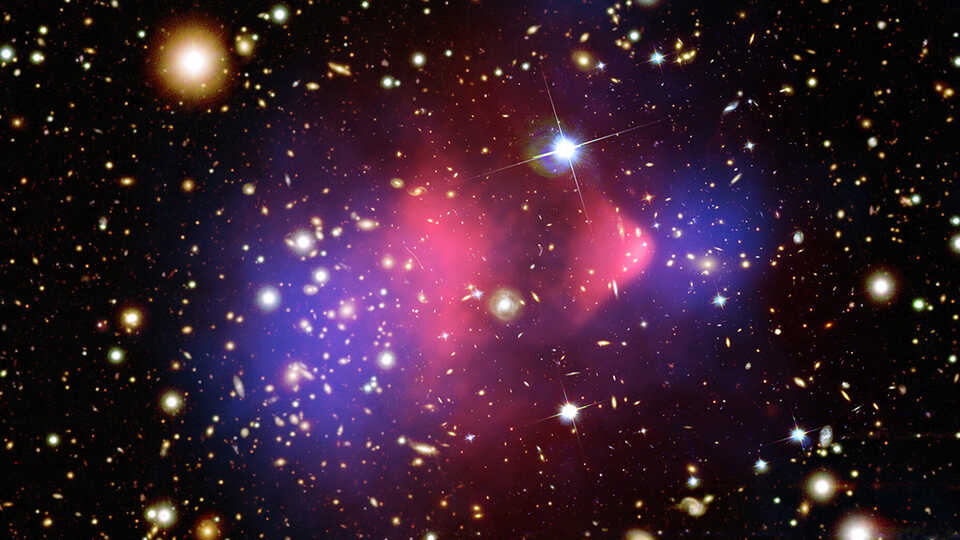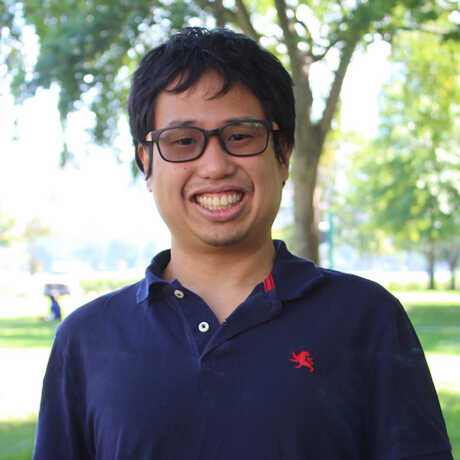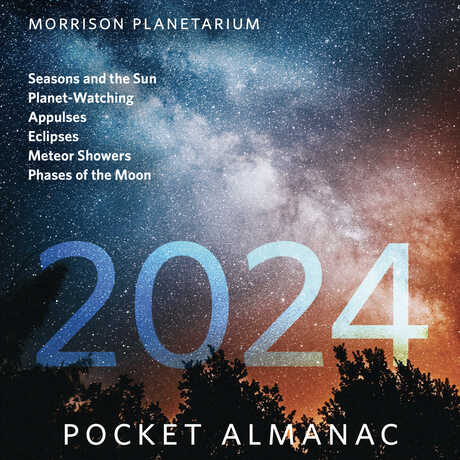Benjamin Dean Astronomy Lectures
Decoding the Mystery of Dark Matter Using Galaxy Clusters

Decoding the Mystery of Dark Matter Using Galaxy Clusters
Monday, August 8, 2022
7:30 pm
Morrison Planetarium
Featuring Dr. Taweewat Somboonpanyakul, Kavli Institute for Particle Astrophysics and Cosmology, Stanford University
One of the main challenges faced by astronomers today is to understand the existence and behaviors of dark matter, which accounts for about 80% of the entire matter content in the Universe. Despite many theories of this mysterious substance, we have yet to achieve a full understanding of its nature and distribution throughout the universe, especially in the absence of signals from direct-detection experiments. At present, the search for dark matter has largely shifted back to the field of astrophysics. For instance, clusters of galaxies provide an excellent laboratory to study the characteristics of dark matter. By studying merging clusters, we can place upper limits on the cross-section of dark matter scattering. Learn how astronomers use galaxy clusters to study various aspects of dark matter, and what other exciting discoveries we are making by studying the largest gravitationally bound systems in the cosmos.
Seating is limited for this event and advance reservations are required. To order by phone, please call (877) 227-1831.
About Taweewat Somboonpanyakul

Taweewat Somboonpanyakul is a Kavli Postdoctoral Fellow at the Kavli Institute for Particle Astrophysics and Cosmology (KIPAC) at Stanford University. Taweewat obtained his Bachelor’s degree in Physics with a specialization in Astrophysics at the University of Chicago in Chicago, IL, and his PhD in Physics at Massachusetts Institute of Technology in Cambridge, MA. His research focuses on studying the properties and evolutions of clusters of galaxies and their massive central galaxies. He uses a wide range of ground- and space-based observatories, including Hubble and Chandra space telescopes and the Magellan telescopes located in Chile, to study these massive objects.
Download Morrison Planetarium's 2024 Pocket Almanac to stay up-to-date on eclipses, meteor showers, satellite spottings, and more.
